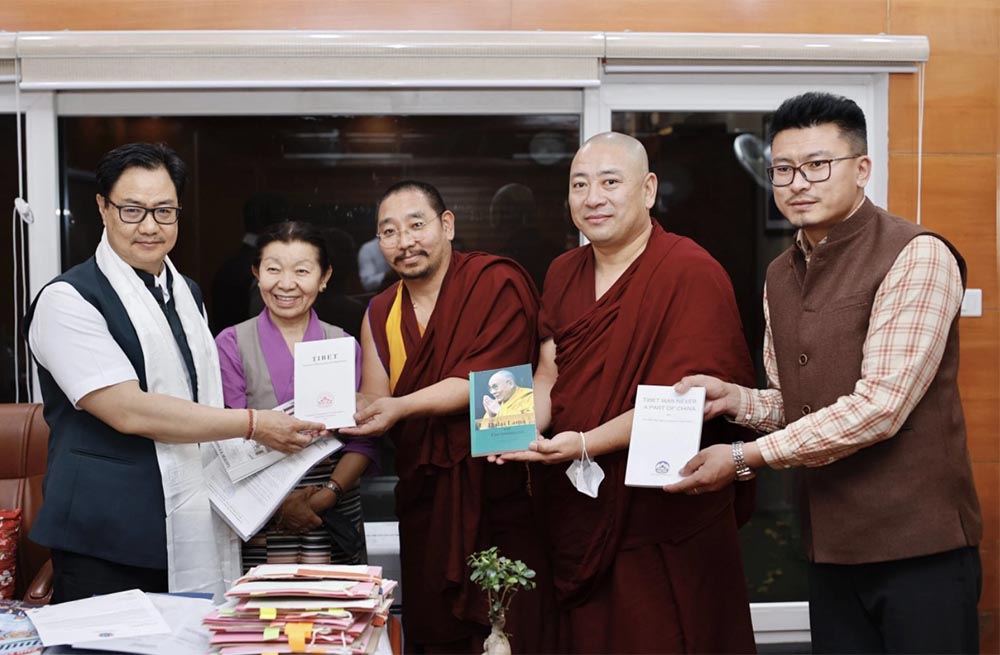(TibetanReview.net, Apr08’22) – A delegation of Tibetan Parliament in Exile (TPiE) led by Deputy Speaker Mrs Dolma Tsering Teykhang is calling on members of the Indian parliament during the latter’s ongoing session, days after Chinese Foreign Minister and State Councilor Wang Yi left New Delhi in what has been seen as a rebuff from the Indian side.
Dolma Tsering said the focus of her visit was to “appraise them about the critical human rights situation inside Tibet and the other thing is culture and religion situation in Tibet is getting extinct in its birthplace” and also “environment situation inside the Tibetan plateau”, reported zeenews.india.com Apr 8.
During the first three of its Apr 4-8 visit, the delegation met with 38 Indian lawmakers that included former and current government ministers as well as leaders of various political parties of India, said the TPiE on the Central Tibetan Administration’s Tibet.net website Apr 7.
The TPiE report said its Tibet Advocacy Campaign delegation visited the headquarters of major Indian political parties in Delhi. These included the headquarters of the Bharatiya Janata Party (BJP), Samajwadi Party, Communist Party of India (CPI), Janata Dal-United (JDU), National People’s Party (NPP), Shiromani Akali Dal (Delhi State), and All India Congress Committee (AICC), beginning with that of Nationalist Congress Party (NCP).
Mr Kiren Rijiju, Minister of Law and Justice, was stated to have helped the delegation in arranging meetings with more than 20 Parliament members from North-Eastern states of India on Apr 4.

Kiren Rijiju is also the convener of north-eastern Parliamentarians and the delegation also met with Dr Rajkumar Ranjan Singh who is the minister of state in the Ministry of external affairs.
However, no meeting with Prime Minister Narendra Modi is scheduled or seen likely to happen.
The other members of the TPiE delegation are Tenpa Yarphel, Khenpo Kada Ngedup Sonam, and Phurpa Dorjee Gyaldhong.
Earlier, Chinese Foreign Minister Wang Yi met with India’s Minister of External Affairs S Jaishankar and National Security Adviser Ajit Doval during his Mar 24-25 visit to New Delhi.
The meetings ended with Wang insisting that the two sides should improve relations in other areas without being bogged down by the border dispute, which continues to be volatile, and India making it clear that normalizing ties between the two sides hung on the fulcrum of settling the border issue.
This may be one reason why Wang was unable to meet with Prime Minister Narendra Modi despite his request. Besides, Wang had expressed strong support for Pakistan’s position in its Kashmir dispute with India just before arriving in India.


